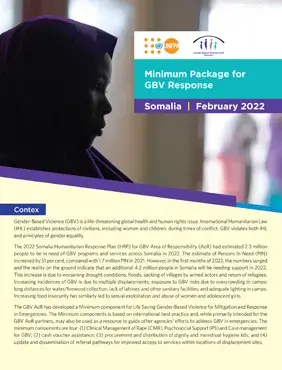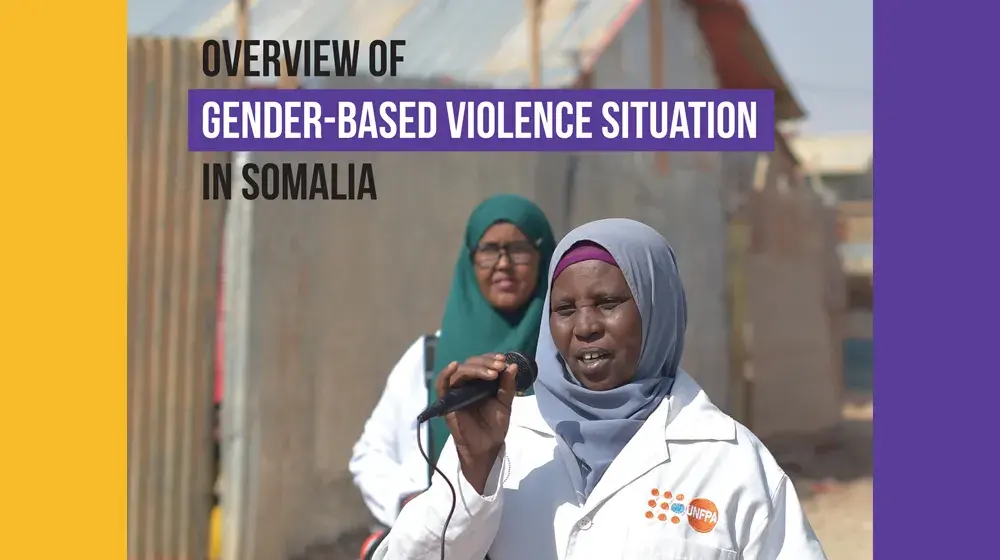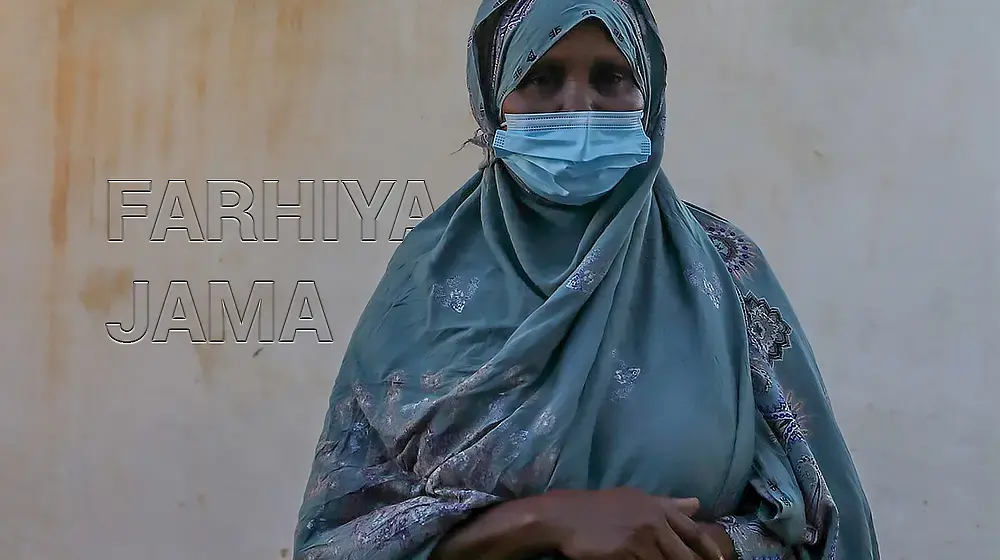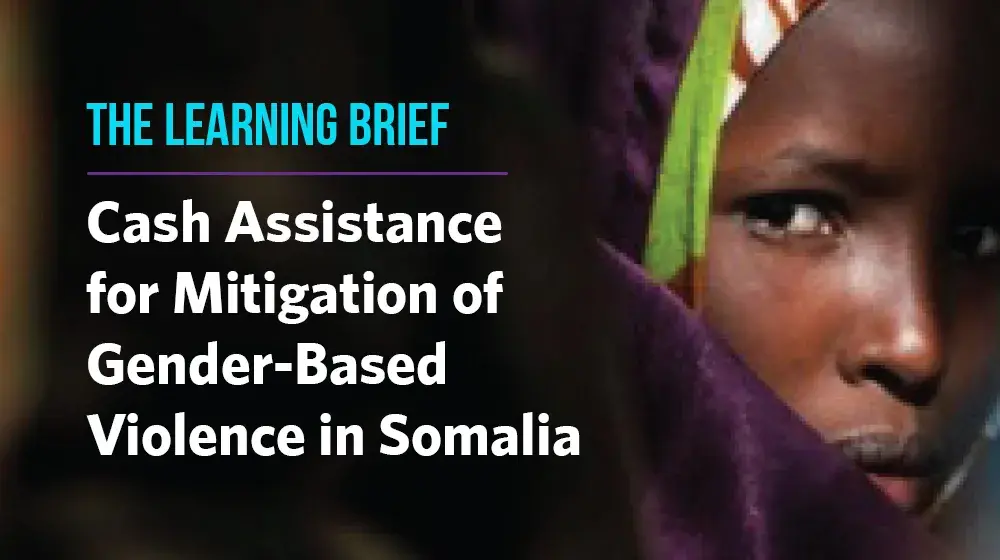Gender-Based Violence (GBV) is a life-threatening global health and human rights issue. International Humanitarian Law (IHL) establishes protections of civilians, including women and children, during times of conflict. GBV violates both IHL and principles of gender equality.
The 2022 Somalia Humanitarian Response Plan (HRP) for GBV Area of Responsibility (AoR) had estimated 2.3 million people to be in need of GBV programs and services across Somalia in 2022. The estimate of Persons In Need (PIN) increased by 51 per cent, compared with 1.7 million PIN in 2021. However, in the first months of 2022, the numbers surged and the reality on the ground indicate that an additional 4.2 million people in Somalia will be needing support in 2022. This increase is due to worsening drought conditions, floods, sacking of villages by armed actors and return of refugees. Increasing incidences of GBV is due to multiple displacements; exposure to GBV risks due to overcrowding in camps; long distances for water/firewood collection; lack of latrines and other sanitary facilities; and adequate lighting in camps. Increasing food insecurity has similarly led to sexual exploitation and abuse of women and adolescent girls.
The GBV AoR has developed a Minimum component for Life Saving Gender-Based Violence for Mitigation and Response in Emergencies. The Minimum components is based on international best practice and, while primarily intended for the GBV AoR partners, may also be used as a resource to guide other agencies’ efforts to address GBV in emergencies. The minimum components are four: (1) Clinical Management of Rape (CMR), Psychosocial Support (PS) and Case management for GBV; (2) cash voucher assistance; (3) procurement and distribution of dignity and menstrual hygiene kits; and (4) update and dissemination of referral pathways for improved access to services within locations of displacement sites.





